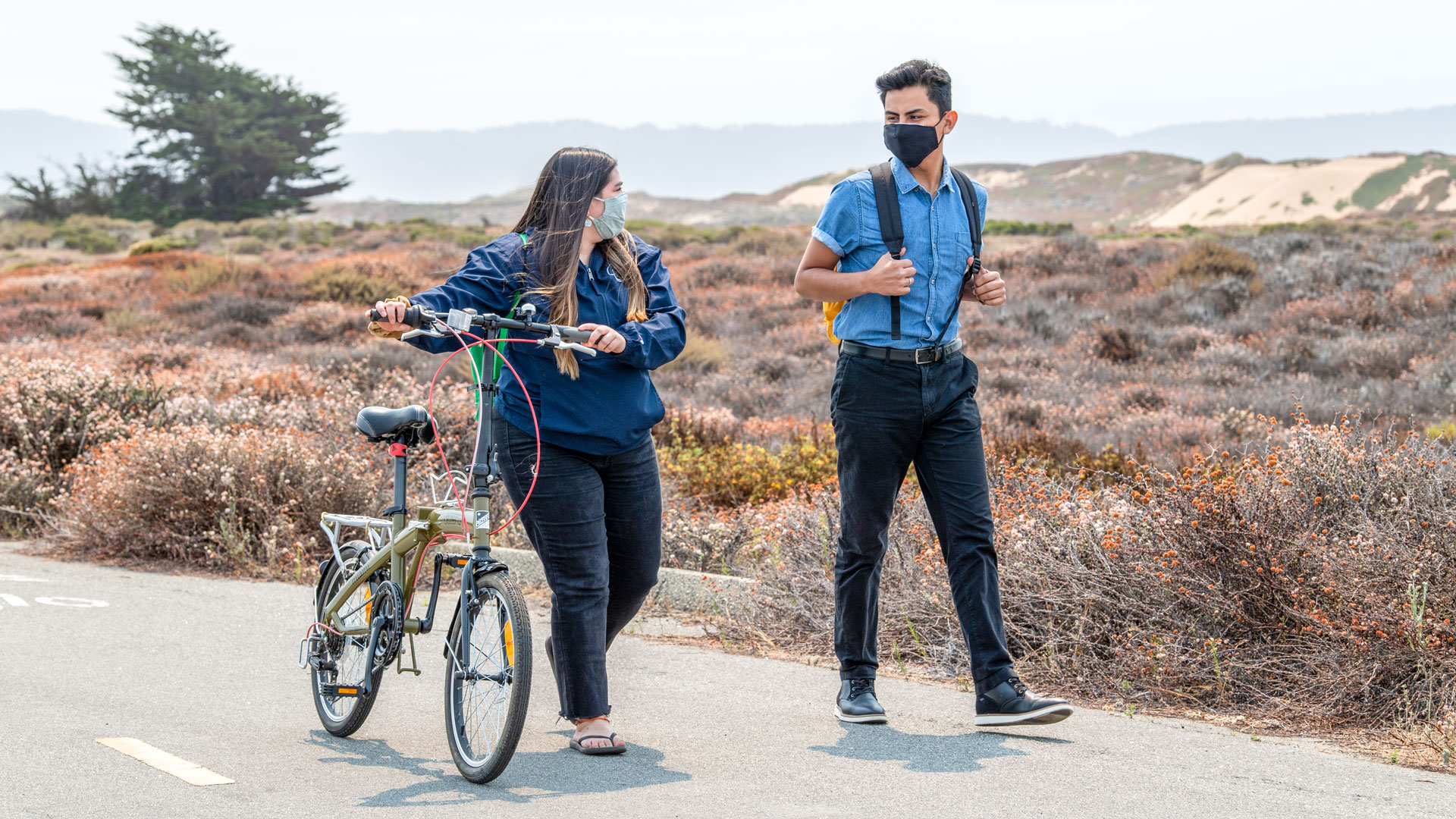Sustainability Efforts
Integrated Learning | Ethical Framework | Real-World Application
Encouraging Alternative Transportation to Campus


We’ve all experienced a full parking lot and cars circling and idling waiting for a spot to open.
To encourage use of the available transportation options to get to work, the College would like to highlight the “saved” emissions from personal vehicle use when alternative options are used.
If you are able to use an alternative means to arrive at work (and get back home of course), we can collect some basic data and use it to calculate the amount of reduced carbon dioxide entering the atmosphere.
You’ll need a few pieces of information to complete the Emissions Prevented form:
1) How many miles is your commute to work (one way)?
2) What is your primary vehicle’s estimated miles per gallon? For this you can use any number of estimates if you don’t know your MPG. Here are a couple:
https://www.fueleconomy.gov/feg/bymodel/bymakemodelnf.shtml
https://www.capitalone.com/cars/carbon-footprint-calculator
We’ll report the results at various points throughout the year. Thanks for participating!
Agricultural Sustainability and Soil Health
Stefanie Kortman, current Graduate Assistant in the Department of Biology and Chemistry and graduate student in the Environmental Science Master's program, works toward achieving goals that address agricultural sustainability and soil health. She is completing internship work as the Greenhouse Gas Emissions Project Coordinator.

Sustainable City Year: Paving the Way for Safer Routes
The Sustainable City Year Program is a university-community connection that allow for collaboration on community needs (as determined by city management). An ongoing partnership that began in 2021 and will stretch through 2025 is The Transportation Agency of Monterey County (TAMC). The focus with TAMC is related to Safe Routes to School (SRTS) encouraging safer and more appealing streets to encourage more biking and walking, and fewer cars transporting students to school.
